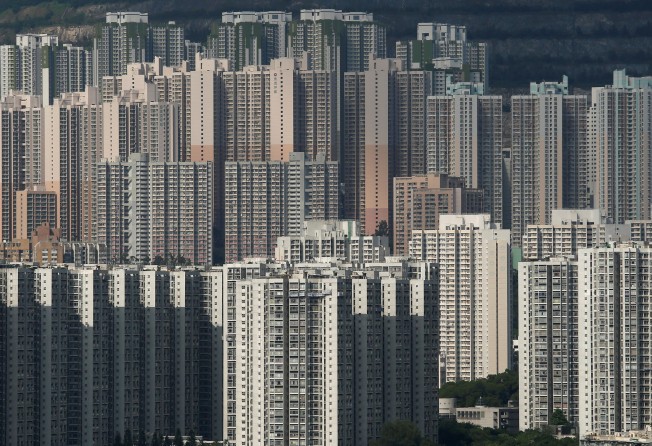Hong Kong’s housing crisis can’t wait for long-term solutions
- The Lantau Tomorrow Vision will take too long to implement for a city where thousands sleep in substandard subdivided accommodation

The government’s recent unveiling of the costs for its Lantau Tomorrow Vision proposal has divided the city: one half is concerned at allegedly exorbitant costs, although some estimates say the project will most likely turn in an eventual surplus; the other half seems to see it as a panacea to systemic housing issues.
The official pitch is that the project is a long-term solution, designed to deal with Hong Kong’s expanding population and to relieve the city of its land shortages. All’s fair and noble, but we must take a stern look at the stark reality.
The reality is, the Hong Kong poor can wait no longer. Not everyone has the luxury to afford waiting it out for the promised public housing.
Not the single mothers struggling to raise their children as they prepare their dinners next to overflowing toilets. Not families dependent upon a single, paltry salary as they wait in the never-ending queues for public housing. Not the 210,000 people living in 93,000 subdivided homes in 2018.
Nearly three per cent of Hong Kong’s population reside in physically hazardous, socially exclusionary, and mentally debilitating conditions.
The physical dangers extend from dire fire safety regulations (particularly in flats converted from abandoned industrial units, such as ones in Kwun Tong and To Kwa Wan) to horrifyingly minimal sanitation standards – up to 21 tenants would share a single toilet. Summers would bring 40 degree Celsius heat to the ramshackle apartments, while the winters would leave tenants shivering in the cold.
When I visited a subdivided flat in the summer of 2017, I spoke to a single lady who said the frequent turnover of some cubicles, alongside the pervasive sense of shame and guilt, made it difficult for tenants to form meaningful connections. They were strangers in proximity – shackled to their fates in the underbelly of Hong Kong, never seen by tourists or the city’s elite.
To give credit where credit is due, Carrie Lam Cheng Yuet-ngor’s government has shown an unprecedented level of willingness (among administrations) to combat the issue of housing shortage. Beyond the Lantau project, the administration has said 70 per cent of the total housing supply target should be public housing, ensuring that more plots are kept for this purpose. A vacancy tax drew the ire of speculative investors but would ensure greater turnover rates in housing for middle-class and lower-middle-class homeowners. Lam herself has shown some willingness to consult and engage the public on prospective solutions to the land supply issue.
Yet these solutions are by no means enough. We need immediate measures that provide relief to these residents.
From a governmental point of view, much more can be done, such as the construction of interim accommodations with reasonable living standards that enable tenants to wait for public housing in dignified circumstances; or the subsidisation of employers to pay workers living in squalid conditions higher wages to enable them to build up savings for relocation; or the provision of medical support and sanitary items to cage-home residents.
What can we do as individuals? We can donate resources to charities and organisations that work with the poor in Hong Kong. We could also seek to raise awareness of the issue, among our peers and influential actors, abroad or locally. We could empower the residents of cage homes by treating them not as victims but as individuals who are just as intelligent, hard-working and competent as you and I – but who have unfortunately got the short end of the stick and found themselves in destitution.
Lantau Tomorrow Vision may well be an integral part of our city’s future. Yet long-term solutions are not the panacea. The Hong Kong poor can wait no longer. We must deliver to them immediate, feasible and impactful solutions – now.
Brian YS Wong is an MPhil student of politics (political theory) at Wolfson College, Oxford University